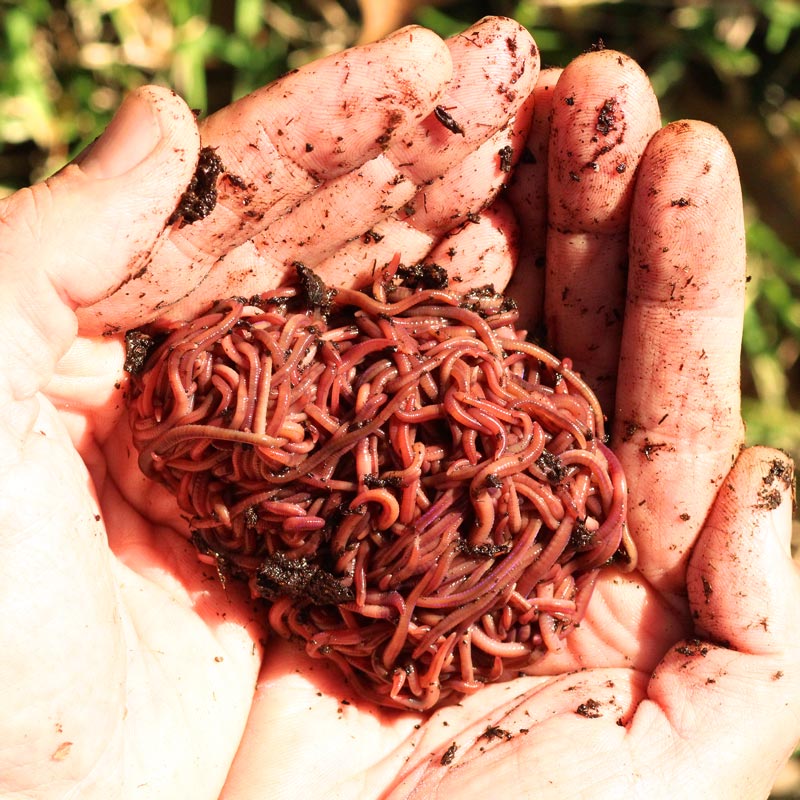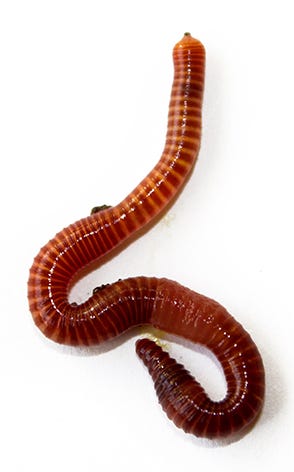Organic Composting with Red Wiggler Worms - Boost Your Garden's Growth
Organic Composting with Red Wiggler Worms - Boost Your Garden's Growth
Blog Article
Red Wiggler Worms Demystified: Opening the Tricks of Vermiculture for Greener Living and Nutrient-Rich Dirt
In the world of sustainable techniques for enhancing dirt high quality and advertising eco-conscious living, red wiggler worms play an essential yet typically overlooked function. Red Wiggler Worms. Understanding the ins and outs of caring for these worms, optimizing their atmosphere, and using their spreadings can lead to a greener lifestyle and healthier dirt for plants to thrive.
The Duty of Red Wiggler Worms
Red Wiggler worms play a vital duty in composting systems by effectively damaging down raw material right into nutrient-rich castings. These starved eaters consume a range of natural materials, such as kitchen area scraps, backyard waste, and paper products. As they feed, the worms' digestive system processes break down the raw material right into a penalty, dark, and nutrient-dense product called worm castings or vermicompost.
The castings created by Red Wiggler worms are very useful for dirt health and wellness and plant growth. They are rich in crucial nutrients like potassium, phosphorus, and nitrogen, which are vital for supporting healthy and balanced plant development. In addition, worm castings contain beneficial microorganisms and enzymes that aid boost soil structure, increase water retention, and boost nutrient uptake by plants.
Benefits of Vermicomposting

It enhances dirt structure, improves dirt oygenation, and boosts dirt moisture retention. Vermicompost additionally improves the soil with necessary nutrients like phosphorus, potassium, and nitrogen, advertising plant development and total soil fertility.
Additionally, vermicomposting assistances sustainable horticulture techniques by supplying a natural and chemical-free alternative to artificial fertilizers. Red Wiggler Worms. This eco friendly approach not only enhances the dirt but also helps in reducing reliance on hazardous chemicals, promoting a greener and a lot more sustainable method of gardening
Establishing a Worm Bin
When developing a worm container for vermicomposting, appropriate arrangement is important to make sure the success of the composting process. The primary step in establishing up a worm bin is selecting a suitable container. This can be a plastic bin or wooden box that offers adequate room for the worms to move around and has appropriate water drainage openings to stop waterlogging. Next, a bed linen material such as shredded paper, cardboard, look these up or coconut coir ought to be contributed to the bin. This bed linen provides a comfortable environment for the worms and assists keep wetness levels.
After including the bed linen, introduce the red wiggler worms to the bin. The worms must then be provided with food scraps such as fruit and veggie peels, coffee premises, and eggshells.
On a regular basis keep an eye on the moisture degrees and temperature level in the worm container to guarantee ideal problems for the worms. With appropriate arrangement and maintenance, the worm bin will successfully transform organic waste into nutrient-rich compost for your plants and yard.
Collecting Worm Spreadings
To effectively gather nutrient-rich worm spreadings from your vermicomposting system, a systematic harvesting technique is vital. When it comes time to gather the worm castings, there are a couple of key actions to follow to guarantee an effective procedure.

Troubleshooting Common Issues
Identifying and dealing with common challenges that may develop during the vermicomposting procedure is critical for keeping a productive and healthy and balanced worm bin. One common problem that vermicomposters experience is overfeeding. Adding excess food scraps can lead to a build-up of dampness and acidity in the worm bin, potentially hurting the worms. To prevent this, feed the worms in small amounts, making sure that the food scraps are appropriately broken down prior to including much more. Another concern is undesirable odors rising from the worm bin. Foul smells show anaerobic problems, typically brought on by overwatering or poor air flow. To correct this, adjust the wetness degrees by including dry bedding products like shredded newspaper or cardboard and boost aeration by turning the bed linen on a regular basis.
Additionally, if the worm populace is decreasing or the worms show up harmful, maybe due to environmental stress factors such as extreme temperature levels or pH degrees. Checking go to this site these aspects and making required adjustments is necessary for the wellness of the worms. By troubleshooting these usual problems promptly, vermicomposters can make certain a smooth and effective vermicomposting procedure while preserving a thriving worm population.

Final Thought
In verdict, red wiggler worms play an essential duty in vermiculture by damaging down natural issue right into nutrient-rich dirt. Establishing up a worm bin is crucial for successful vermiculture, and collecting worm castings offers beneficial compost for horticulture.
As they feed, the worms' gastrointestinal procedures damage down the natural issue into a fine, dark, and nutrient-dense material understood as worm castings or vermicompost.
The spreadings created by Red Wiggler worms are very useful for soil wellness and plant growth. Including excess food scraps can lead to a build-up of moisture and acidity in the worm container, possibly harming the worms.Additionally, if the worm population is declining or the worms appear harmful, it might be due to ecological stressors such as extreme temperature levels or pH degrees. Establishing up a worm bin is crucial for successful vermiculture, and harvesting worm spreadings gives important garden compost for horticulture.
Report this page